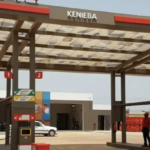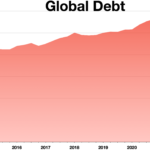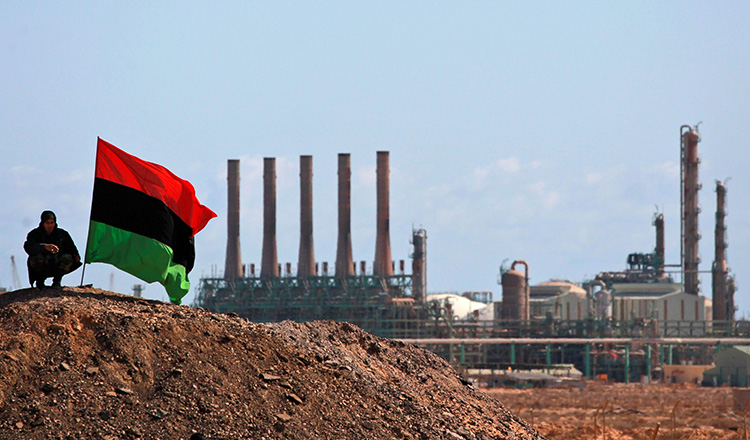Mali suspends foreign gold mining permits after fatal accidents
Mali has suspended permits for foreign artisanal gold mining companies following a series of fatal accidents in the country.
Congo’s cobalt export ban disrupts ERG shipments, supply chains
ERG has declared force majeure on cobalt shipments from its Metalkol operation due to Congo’s export ban, impacting global supply and pushing cobalt prices higher.
Turkey and Zambia aim to boost agricultural ties
Türkiye and Zambia have held discussions to strengthen bilateral agricultural cooperation, focusing on mechanization and technology transfer to modernize Zambia’s agricultural sector.
Seplat Energy to invest $320 million as Exxon assets fuel growth
Seplat Energy plans to invest up to $320 million in new wells and infrastructure to boost oil output to 140,000 bpd following its acquisition of Exxon’s Nigerian assets.
Libya opens first oil bidding round in 17 years
Libya has announced its first oil exploration bidding round in 17 years to attract foreign investment and boost oil production.
Uganda signs first mining deal to revive Kilembe copper mine
Uganda has signed its first mining production sharing agreement to redevelop the dormant Kilembe copper and cobalt mine with local firms Sarrai Group and Nile Fibreboard Limited.
Cocoa mid-crop at risk in Ivory Coast due to lack of rainfall
Ivory Coast farmers highlight the need for regular rainfall to support cocoa mid-crop this month.
Egypt’s net foreign assets surge in January after bond sale
On January 29, Egypt issued $2 billion in international bonds—the country’s first such sale in four years—helping to bolster its foreign reserves
Niger expands satellite internet to connect rural communities
Niger has partnered with Starlink to expand satellite broadband access, aiming to bridge its digital divide, especially in remote areas where traditional networks are unavailable.
Morocco secures $2.9b deal for 168 trains
Morocco’s state-owned rail operator ONCF has agreed to purchase 168 trains from France, Spain, and South Korea for $2.9 billion to expand its rail network ahead of the 2030 FIFA World Cup.
Algeria’s Sonatrach and China’s Sinopec sign $850 million deal
The agreement focuses on the exploration and development of oil and gas reserves
IMF aid to Guinea depends on tax debt recovery says government
International Monetary Fund (IMF) has informed Guinea that a new financial support program is contingent upon the country recovering outstanding tax debts.
Google, Meta face potential fines for stifling South African news media
In a provisional report released Monday, the regulator accused Google of skewing search results in favor of global news outlets while downplaying local and community media
Eskom announces days of power cuts in South Africa
South Africa is experiencing widespread power cuts after multiple breakdowns at Eskom’s coal-fired power plants.
Gambia, Turkey strengthen ties through media, culture
Gambian Information Minister Ismaila Ceesay emphasizes Turkey’s strong relations with Gambia, highlighting cultural exchanges and mutual cooperation in media, defense, and investments.
Ivory Coast cashew processors face funding gap
The ancient city of Chinguetti in Mauritania is at risk as desertification and climate change threaten its homes, history, and cultural heritage.
Turkey, South Africa discuss trade, investment in Johannesburg
Turkish Foreign Minister Hakan Fidan met with his South African counterpart Ronald Lamola in Johannesburg to discuss bilateral trade, investment opportunities, potential defense industry cooperation.
African e-commerce giant Jumia plans expansion and cost cuts
Jumia Technologies, an Africa-focused e-commerce retailer, projects order growth of up to 25% and continued cost reductions in 2024, despite facing increasing competition from Chinese companies like Temu.
Ethiopia and Russia ink 3-year nuclear cooperation deal
Ethiopia and Russia’s new nuclear cooperation agreement will drive technological exchange and nuclear infrastructure development.
Jobless rate down in South Africa, but challenges remain
It remains one of the highest in the world, and the country faces economic uncertainty due to potential cuts in US aid.
Rebased data shows lower inflation rate in Nigeria
The rebasing, which reflects changes in consumption patterns, has led to a lower inflation figure than previously reported.
Ethiopia bondholders dispute IMF report on solvency concerns
The bondholders believe the IMF’s analysis undervalues Ethiopia’s economic fundamentals and overstates the need for debt relief.
Ghana intensifies efforts to combat pangolin poaching
Ghana is intensifying efforts to protect endangered pangolins from poaching, focusing on increased patrols, community engagement, and awareness initiatives.
Thomson Reuters rejects ‘social deception’ allegations
The company says it provided software, information services to US agencies to prevent fraud
US escalates trade war with new reciprocal tariff policy
Trump announced new reciprocal tariffs targeting allies and competitors, aiming to counter trade imbalances, though economists warn they may raise US inflation and strain global trade.
DeepSeek AI faces global backlash: What’s behind the controversy?
Several countries have banned DeepSeek for government employees, citing concerns over national security, user data, and privacy
Somalia, Azerbaijan sign agreements to boost cooperation
Azerbaijan and Somalia have taken a significant step towards strengthening their bilateral ties by signing agreements to enhance cooperation in public service, green energy, education, and defense.
































